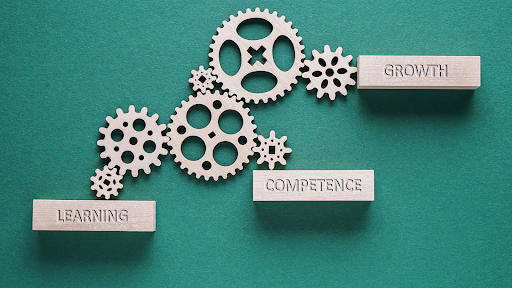Subscribe to our newsletter

In today’s fast-paced, disruption-driven business environment, organizations cannot afford to stay static. The companies that thrive are those that embed continuous learning into the DNA of their culture — encouraging employees at all levels to grow, adapt, and innovate. More than just a competitive advantage, continuous learning is now a strategic necessity.
At Better Manager, we work closely with organizations to design and deliver professional coaching, leadership coaching, group coaching, and team training, especially for young and first-time managers. Our work has shown that cultivating a learning culture through talent development not only strengthens leadership pipelines but also drives long-term organizational resilience.

Here’s how to build a culture of continuous learning — and why it matters now more than ever.
Why Continuous Learning Is a Business Priority
Technological change, shifting employee expectations, and evolving customer needs mean that yesterday’s skills may not meet tomorrow’s demands. Organizations that foster ongoing development can respond faster, innovate more effectively, and empower their workforce to take ownership of their career growth.
For emerging leaders, especially first-time managers, this is critical. They must learn to lead through uncertainty, inspire diverse teams, and adapt to new ways of working. Without a learning culture, these leaders risk becoming stagnant or overwhelmed — ultimately impacting team performance and morale.

Key Elements of a Learning Culture:
1. Leadership Commitment to Learning
Senior leaders set the tone. When executives and managers openly prioritize their own learning and development — whether through coaching, training, or mentorship — it signals to the rest of the organization that learning is valued and expected.
Better Practice: Encourage leaders to share their learning goals and progress publicly. Sponsor leadership coaching initiatives that model the behaviors you want to scale across the organization.
2. Accessible and Inclusive Development Opportunities
Learning should be integrated into the flow of work, not treated as a one-off event. Whether it’s through group coaching, online training, or peer learning sessions, development must be accessible, relevant, and scalable.
At Better Manager, we focus on providing coaching programs tailored for young and emerging leaders, helping them build skills like self-awareness, communication, and strategic thinking — all within a practical, real-world framework.
3. Psychological Safety and a Growth Mindset
To learn effectively, employees need a safe space to ask questions, try new things, and even fail. A growth mindset culture values experimentation over perfection and rewards curiosity over certainty.
Better Practice: Train managers to give constructive feedback, encourage reflective thinking, and celebrate progress — not just results.
4. Recognition and Accountability
Recognize those who actively pursue learning and apply it in their roles. This not only reinforces desired behaviors but also creates role models across teams.
At the same time, integrate learning into performance expectations. When development is seen as a business priority — not an optional benefit — it becomes a shared responsibility across the organization.
The Role of Coaching in Driving Continuous Learning
Coaching plays a central role in building learning cultures. Unlike traditional training, coaching is personalized, ongoing, and focused on real-world challenges. It promotes self-awareness, resilience, and accountability — especially important for new managers navigating complex roles.

At Better Manager, our leadership and group coaching programs help participants move from knowledge to action, making learning stick and transforming behavior over time.
Final Thoughts
Creating a culture of continuous learning is not a one-time initiative — it’s a mindset shift that requires consistent reinforcement, inclusive development programs, and leadership commitment at every level. When learning becomes a part of “how we work,” organizations unlock innovation, agility, and long-term success.

